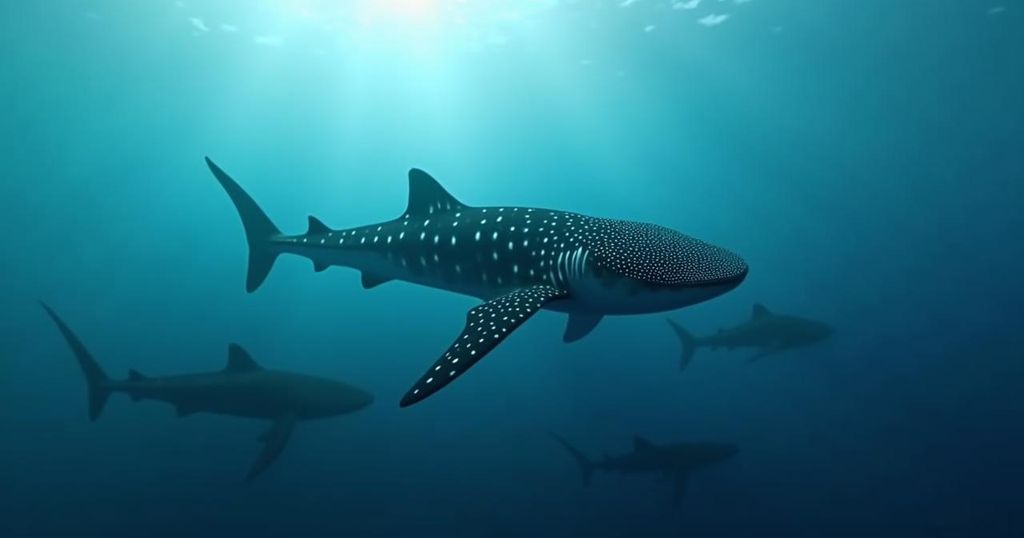Climate Change Increases Collision Risks for Endangered Whale Sharks

A recent study highlights the heightened risk that climate change poses to endangered whale sharks, increasing the likelihood of ship collisions as these fish migrate into new habitats that overlap with busy shipping lanes. Researchers project a dramatic rise in these co-occurrences, emphasizing the critical need for conservation efforts to address this phenomenon.
Recent research indicates that whale sharks, the largest fish species, are increasingly jeopardized by potential ship collisions due to climate change. Studies conducted by the University of Southampton and the Marine Biological Association have revealed that as ocean temperatures rise, these endangered creatures may be forced into new habitats that intersect with busy shipping lanes. By the end of the century, the likelihood of whale sharks encountering large vessels could increase by up to 15,000 times, significantly raising the risk of fatal encounters. The research published in the journal Nature Climate Change reveals that under severe emission scenarios, key habitats for whale sharks could diminish by over 50% by 2100, particularly within Asian waters. Conversely, regions adhering to sustainable development pathways—aiming to limit global warming to 2°C—may experience habitat improvements, especially in Europe. The study highlights the essential role of proactive measures in mitigating these adverse effects. Utilizing satellite-tracking data alongside climate models, researchers predicted whale sharks’ distribution patterns under three distinct climate scenarios. They discovered that overlaps between newly suitable habitats for whale sharks and high shipping traffic locations, such as the North Pacific Ocean and Eastern China Seas, would intensify the risks, even without an increase in shipping activities. Overall, the research underscores that the interplay between climate change and human activities places these highly mobile species at heightened risk. This finding emphasizes the crucial necessity to incorporate climate considerations into wildlife conservation strategies.
Whale sharks, known for their immense size, currently face dire threats as their populations are classified as endangered. Climate change, characterized by rising ocean temperatures and shifting environmental conditions, compounds these threats, forcing whale sharks into habitats where they are more likely to intersect with busy shipping routes. This concern has prompted scientists to examine the potential consequences of climate change on marine biodiversity, specifically regarding large migratory species such as whale sharks. The interplay of human activities, particularly shipping, and environmental changes poses critical challenges for effective wildlife management and conservation strategies.
In conclusion, the research elucidates the profound impact of climate change on whale sharks, revealing that increased ocean temperatures may drive these endangered species into perilous shipping lanes, thereby amplifying the risk of fatal collisions. The projected increase in co-occurrence with shipping traffic underscores the urgency of addressing climate change to protect marine life. Strategies aimed at mitigating emissions and preserving habitats are essential for sustaining whale shark populations and enhancing their safety in the face of a changing climate. This study advocates for incorporating climate resilience into conservation planning to effectively manage the intricate dynamics between marine species and human activities.
Original Source: www.fox28spokane.com






